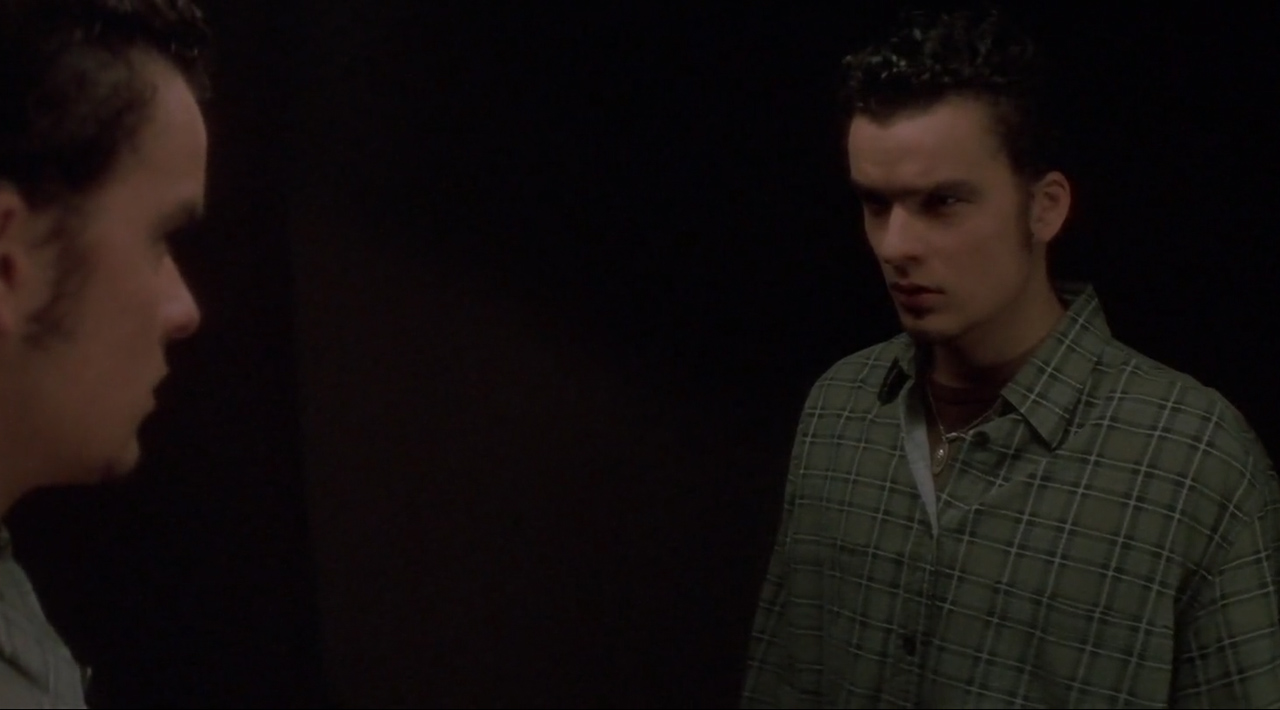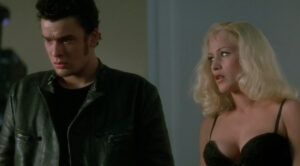David Lynch’s Lost Highway and Lacan

Written by Hami J.
One consistent thematic preoccupation across a range of David Lynch’s narratives is the blurring boundary between illusion and reality. This is particularly evident in dreams, where reality, or in Lacanian terms, the Symbolic Order, clashes with the inner urges and desires of the subject.
A good part of Lost Highway, for instance, revolves around the protagonist Fred’s fantasy, wherein he seeks to escape the real world as a way to compensate for his loss (impotence). After undergoing a transformation into Pete, he projects his own lack of sexual potency onto a character whose libidinous nature effortlessly attracts women. Pete, unaware of his past and present, a mature infant, finds himself in a state of arrested development, struggling to comprehend the unfamiliar circumstances by examining his own reflection in the mirror.
Keeping Lacan’s Mirror Stage in mind, what Pete sees in the mirror is a gestalt, a totality, a complete representation of his body with all its physical strength, as he strives for a sense of self-identification. One could argue that although the “shattering of the Innenwelt to Umwelt” has likely already occurred after his release from prison (representing the repressed fantasy metaphorically), by gazing at his reflection, he acknowledges the changes he is undergoing following the realization of his fantasy: the wound on his forehead, the only remnant of his imprisonment as Fred, vanishes, enabling him to identify with the symbolic.

Following the mirror scene, he goes on a passionate nighttime drive with his girlfriend, who once again reveals her emotional and sexual neediness, a stark contrast to what Fred receives from his wife. On the other hand, Mr. Eddy (Dick Laurent), who, as argued by Žižek, represents the symbolic father, sustains the symbolic aka the status quo. He directs Pete to abide by the rules and prevents him from pursuing an affair with Alice (Renee’s doppelgänger). In response, Pete, having externalized Fred’s internal sexual disorder onto an external character, Mr. Eddy (the father figure), relentlessly pursues his objet petit a, Alice, at any cost ( Fred’s lack is demonstrated in one of his erotic encounters with Renee in which he seeks comfort for his impotence through her gentle back-patting, like a mother’s).
Pete’s fantasy shatters when, during their sex encounter in the desert, Alice whispers in his ear:
“You’ll never have me”
While the image Pete sees in the mirror is his alter ego, or rather the idealized version of Fred as an imago that compensates for all his lack, the whisper here functions as a figurative mirror. It hints at the perpetual failure Fred faces in all his relationships, be it in the real or phantasmatic world, and helps him in discovering himself within his own body.

